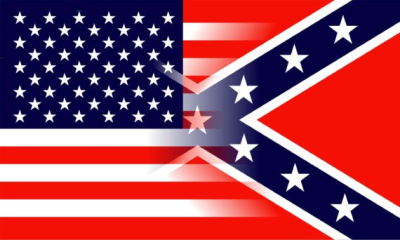About Publications Library Archives
heritagepost.org

Preserving Revolutionary & Civil War History

Preserving Revolutionary & Civil War History

We have all been taught that Abraham Lincoln was a gentleman, “Honest Abe,” a man who advocated “malice toward none and charity for all.” We have been taught that Lincoln would have opposed the policy pursued by Radical Republicans like Thaddeus Stevens, which pushed for vengeful, retributive policies against the South. We have been taught in books, movies, and documentaries that Lincoln instead preferred a policy of healing that neither punished the defeated Confederate government and Army nor average Southern civilians.
Since Lincoln was assassinated before the Reconstruction policies were put into effect, we can never know for sure if he was sincere or not.
However, we can make an informed judgment regarding his true motivations if we examine how he militarily conducted the Civil War as Commander in Chief of the Federal forces and which military policies he preferred his generals take in prosecuting the war.
Unfortunately, the sad truth is that by almost any standard – those that existed prior to the War, those that existed after the War or even by the very standards Lincoln proclaimed to be operating under DURING the war, the prosecution of it… against civilians, against POWs, against property, against slaves, against women and children, against public works used for civilian purposes… was clearly criminal.
There is even evidence indicating that ironically given his own fate, high ranking members of the Lincoln Administration may have approved an assassination plot against Confederate President Jefferson Davis during the War.
One may be tempted to seek to give Lincoln a pass by indicating that during a conflict as vast and violent as the Civil War (a term I will use here as it is the most common name applied to the conflict, despite the fact it is a gross misnomer) he could not have been aware of every illegal act or war crime his generals or officer corps may have committed and that there is little evidence he directly ordered that war crimes being carried out.
The evidence, however, is quite stark that Lincoln often acted much as did Henry II of England who, seeking to indicate to his knights that he would prefer they “get rid of” his politically disloyal Archbishop of Canterbury Thomas a Becket by beseeching them, to quote, “Will no one rid me of this turbulent priest?”
Henry did not have to issue a clear direct order to make his point to his knights regarding Becket; Lincoln was in a similar position with his generals regarding the military policy he preferred regarding the South. If we consider Lincoln and his generals in this fashion, we can get a better picture of his culpability in the perpetration of Federal War Crimes against the Confederacy as a matter of implementing the Federal military doctrine of “strategic military necessity.”
This concept, as we will see, allowed the Federal Armies to elude their own rules of war as laid out in their own “Lieber Code” – a code they formed to supersede the previous, far more civilian friendly code that existed prior to the War. Of course, there is no doubt that Confederate soldiers committed individual crimes against civilians, property, POWs, women, children, slaves, and Public Works during the War. However, these were individual crimes that were not only unsanctioned by the Confederate Government and Military Command, but were expressly forbidden and usually severely punished when they were known to have occurred.